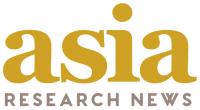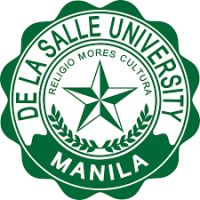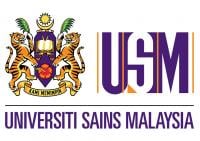Content is provided by our community of institutions, partners, researchers and journalists.

Asia Research News
06 Nov 2006
The Environment is a major concern in many Asian countries. ResearchSEA is launching Focus on The Environment to highlight the experts and research related to the Environment.

De La Salle University
06 Nov 2006
The possibility of higher concentration of contaminants in buses and air-conditioned buildings pose potential health problems to users and occupants.

Wellcome Trust
06 Nov 2006
The eye can provide a very reliable way of diagnosing cerebral malaria, researchers in Malawi have shown. By looking at the changes to the retina, doctors are able to determine whether an unconscious child is suffering from this severe form of malaria or another, unrelated illness, leading to the most appropriate treatment.

Nature Publishing Group
05 Nov 2006
Summaries of newsworthy papers from Nature and Nature Research Journals include: DNA sequencing reveals bacterial evolution in the lab, Kidney disease caused by mutation may be reversible, Benefits of fever, Redefining receptor organization – again.

NAM S&T Centre
03 Nov 2006
Scientific benefits to the member countries of the Centre For Science And Technology Of The Non-Aligned and Other Developing Countries include participating in policy decision, financial support, news dissemination and many more

Nature Publishing Group
03 Nov 2006
More than one hundred Nobel laureates have written to Colonel Muammar al-Gaddafi to express their concern over the death-penalty case of 5 Bulgarian nurses, and a Palestinian doctor, accused of deliberately infecting more than 400 children with HIV in 1998.

Universiti Malaysia Sarawak
02 Nov 2006
The eBario project wins gold medal at Commonwealth Innovation Award. The research project uses innovative application of ICTs with the goal of continually sustaining social and economic programs in a rural community in Sarawak which does not have the basic amenities such as electricity, water and telecommunications.

Keio University
02 Nov 2006
The hepatitis C virus infection is estimated to affect 170 million people around the world. The researchers aim was to analyse if the new induction therapy with twice-daily IFN-ß is better than once a day CIFN therapy for a period of 6-months for chronic hepatitis C.

Tokyo University of Science
02 Nov 2006
The project aims to develop innovative alternative technologies that utilize pollution-free solar light energy as the most abundant, efficient and environmentally-harmonious energy resource. The TOSLEC-1, hosted jointly by Tokyo University of Science (TUS) and Nissan Science Foundation, was held at Tokyo University of Science.

Nature Publishing Group
01 Nov 2006
An unprecedented look at the prospects for science and technology in the Muslim world is offered in Nature's News section this week.

Nature Publishing Group
01 Nov 2006
Having your cake and eating it too, ‘Silver bullet’ strategies due a rethink, Rock-solid support for ‘Snowball Earth’ theory, The benefits of sleeping around, Tiny mirrors chill out, New sonic hedgehog receptor, Maize fungal genome deciphered, ‘Export’ protein structure unveiled, Policing every egg you lay

Tokyo University of Science
01 Nov 2006
Tokyo University of Science (Chairperson, Board of Governors - Takeyo Tsukamoto) was awarded an AA- rating by the reputed American credit ratings company 'Standard and Poors'. AA- is fourth from top in long-term credit rating rankings. The outlook on this rating is stable.

Tokyo University of Science
01 Nov 2006
The Tokyo University of Science entered into Agreement of Cooperation with the University of California, Santa Cruz, USA, on September 1, 2006.

Tokyo University of Science
01 Nov 2006
The discussion focused on math and science teachers for primary and secondary education. The U.S. is facing problems due to the declining quality of teachers. This visit was to help find measures to improve the situation by discussing with professors who educate math and science teachers in the Japanese education system.

Tokyo University of Science
31 Oct 2006
A research group headed by Takashi Tsuji of the Tokyo University of Science's Tissue Engineering Research Center identified mechanisms behind outbreaks of adult T-cell leukemia.

Tokyo University of Science
31 Oct 2006
The research team from a joint research program of Tokyo University of Science (TUS)and the Japan Science and Technology Agency have succeeded in producing hydrogen from water through the use of gallium nitride (GaN) crystals for the first time.

Studies in Islam and the Middle East
30 Oct 2006
Many meaningful milestones in the human history were in the form of existentialist struggles marked by violence and wars. Civilizations are built with the blood of warriors and the sweat of the laborers. History shows us that before stability is attained, countless innocent lives are lost and personal and public properties are destroyed.

Palestine Academy for Science and Technology
29 Oct 2006
The focus of this paper is on two activities that are related to the management of international river basins. The first of these is a scientific report, which is now more than five years old and focuses on the management of the waters of this region of the Middle East. The second is the Rosenberg International Forum on water policy

Gulf Research Center
29 Oct 2006
It took three years for the US to seriously consider alternate plans when their main plank fell apart. In planning an alternate approach now, can the US be sure that it has a workable plan or will it wait for another three years to decide if there is yet another way out of the likely mess?

Nature Publishing Group
29 Oct 2006
Magnetic cooling demonstrated in a gas, A step towards quantum networks, Seeing the benefits of nanoceria, A potential male contraceptive, Towards a complete human ‘epigenome’, Small RNAs drive evolution, Genetic risk for schizophrenia and brain function, Knocking out false positives in interaction proteomics

Nature Publishing Group
26 Oct 2006
Should willing individuals be allowed to sell their kidneys? Yes, according to a Viewpoint article in Nature Clinical Practice Nephrology, which argues that failure to regulate kidney sales could be unethical. Abdallah S Daar asserts that the traditional moral arguments against payment for organs are difficult to sustain under close scrutiny.

Universiti Malaysia Sarawak
25 Oct 2006
The compilation of a list of mammals of Borneo has come a very long way. This on-line checklist owed to many previous European travelers, traders, colonial officers, museum collectors, curators and biologists describing those species that are known to us today.

Divan Enterprise (indianjournals.com)
25 Oct 2006
This paper presents accounts of the major developments in the Indian commodity, exchange rate and financial derivatives markets, and outlines the regulatory provisions that have been introduced to minimise misuse of derivatives.

Nature Publishing Group
25 Oct 2006
Nuclear forensics, Global cooling preceded life on Earth, DNA degradation link to rheumatoid arthritis, Lampreys, the supreme survival specialists, The conductivity of mantle minerals, Largest avian skull runs rings around agility theory

Nature Publishing Group
25 Oct 2006
A new technology that mimics the suspension of white blood cells in blood in the body is reported online this week in Cell Research. The novel joystick-controlled laser traps that the authors use provide valuable new information on how white blood cells engulf bacteria – a crucial part of the body’s defense against infection.

Gulf Research Center
22 Oct 2006
More important than the elections is establishing an electoral culture, and this cannot be fulfilled through spectators. It has to be achieved through actual participation, not necessarily in the highest public domain; it could start at the level of local or municipal councils

Gulf Research Center
22 Oct 2006
The October issue of GRC's Economic Research Bulletin is focused on the GCC mineral and mining industry

Nature Publishing Group
22 Oct 2006
Summaries of other newsworthy papers from Nature include Inducing connections between brain sites alters motor function - Nature, The bottom line for silk - Nature Materials, Bittersweet news for neural stem cell grafts - Nature Medicine, TAPping into mammalian interaction proteomics - Nature Methods

Asia Research News
20 Oct 2006
People around the world can access information about harmful introduced species easier than ever thanks to the September 2006 launch of a new website for the Global Invasive Species Database (GISD).

Universiti Sains Malaysia
19 Oct 2006
This innovation offers versatility and is applicable on virtually all types of materials regardless of it nature or origin such as semi-metals like silicon, silicates, glasses, ceramics as well as non-metals like plastics, woods and shells.

